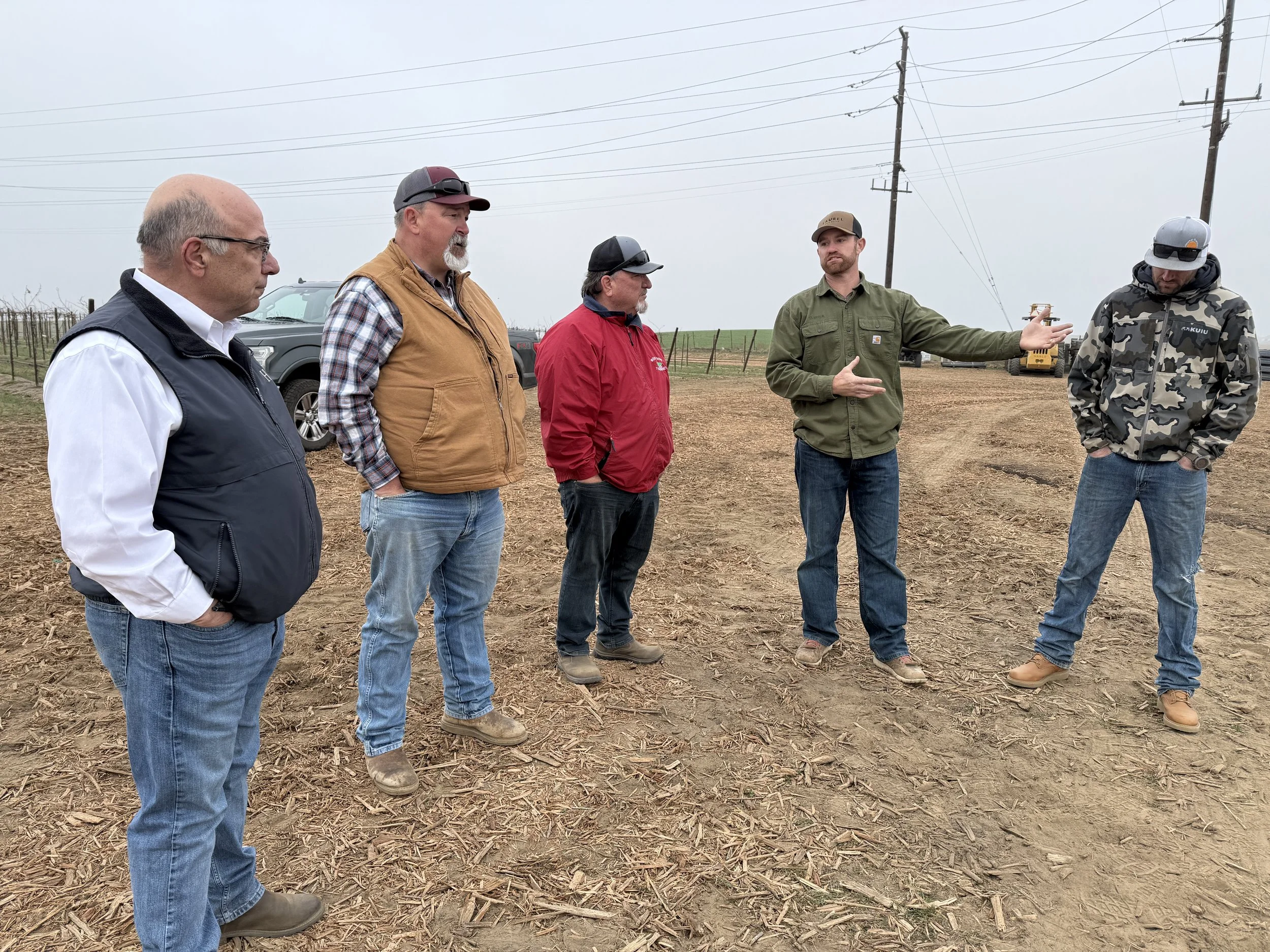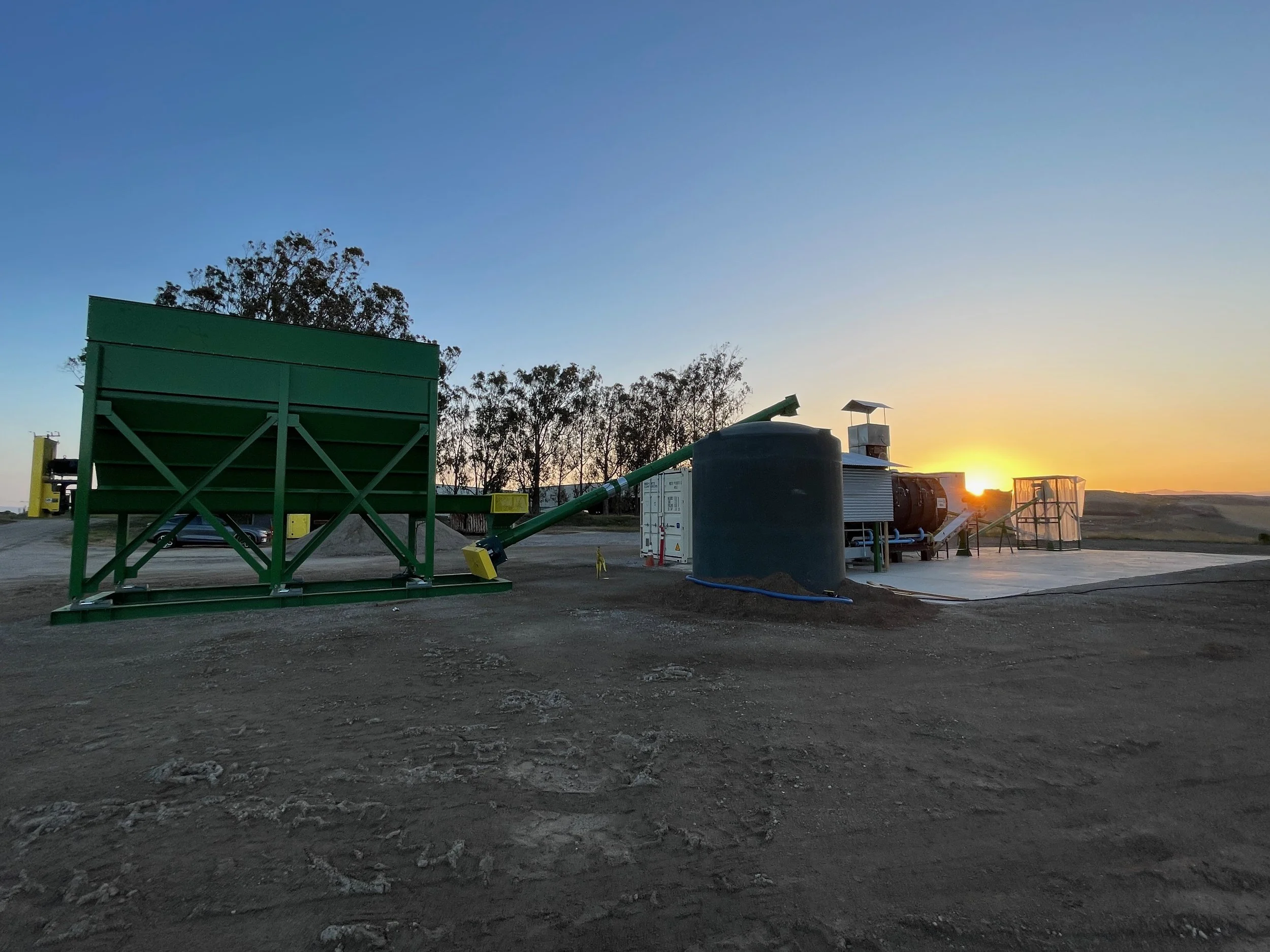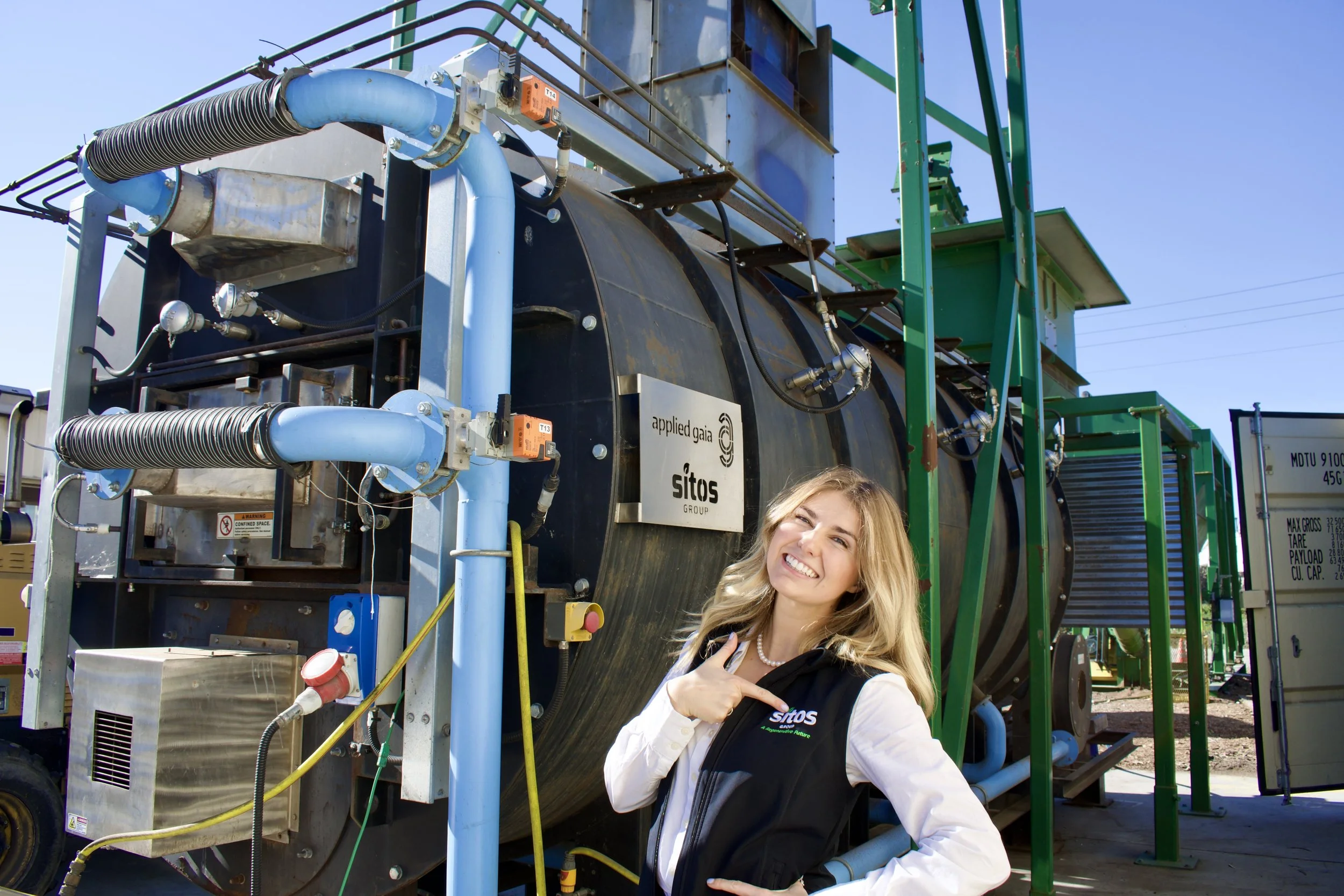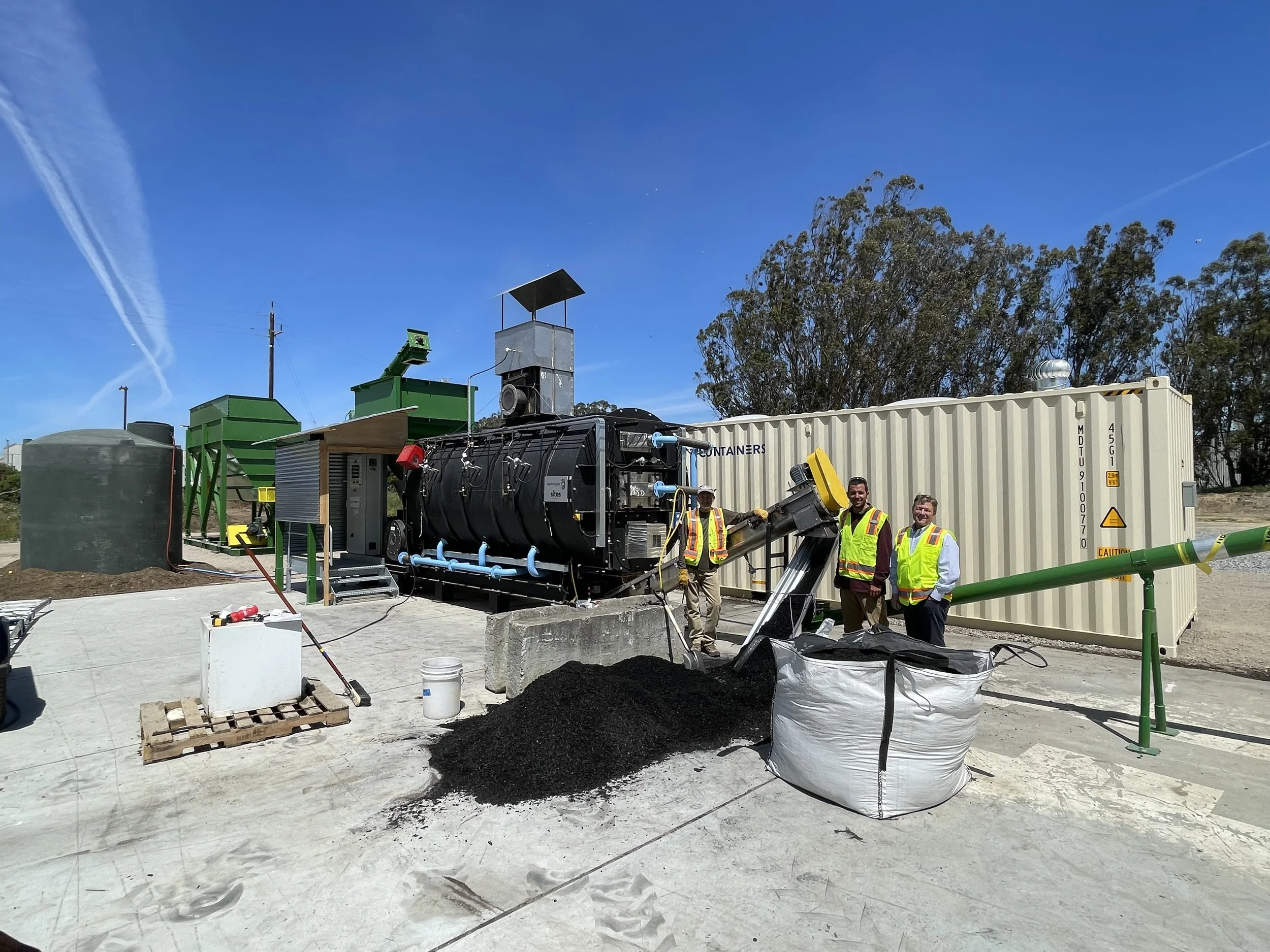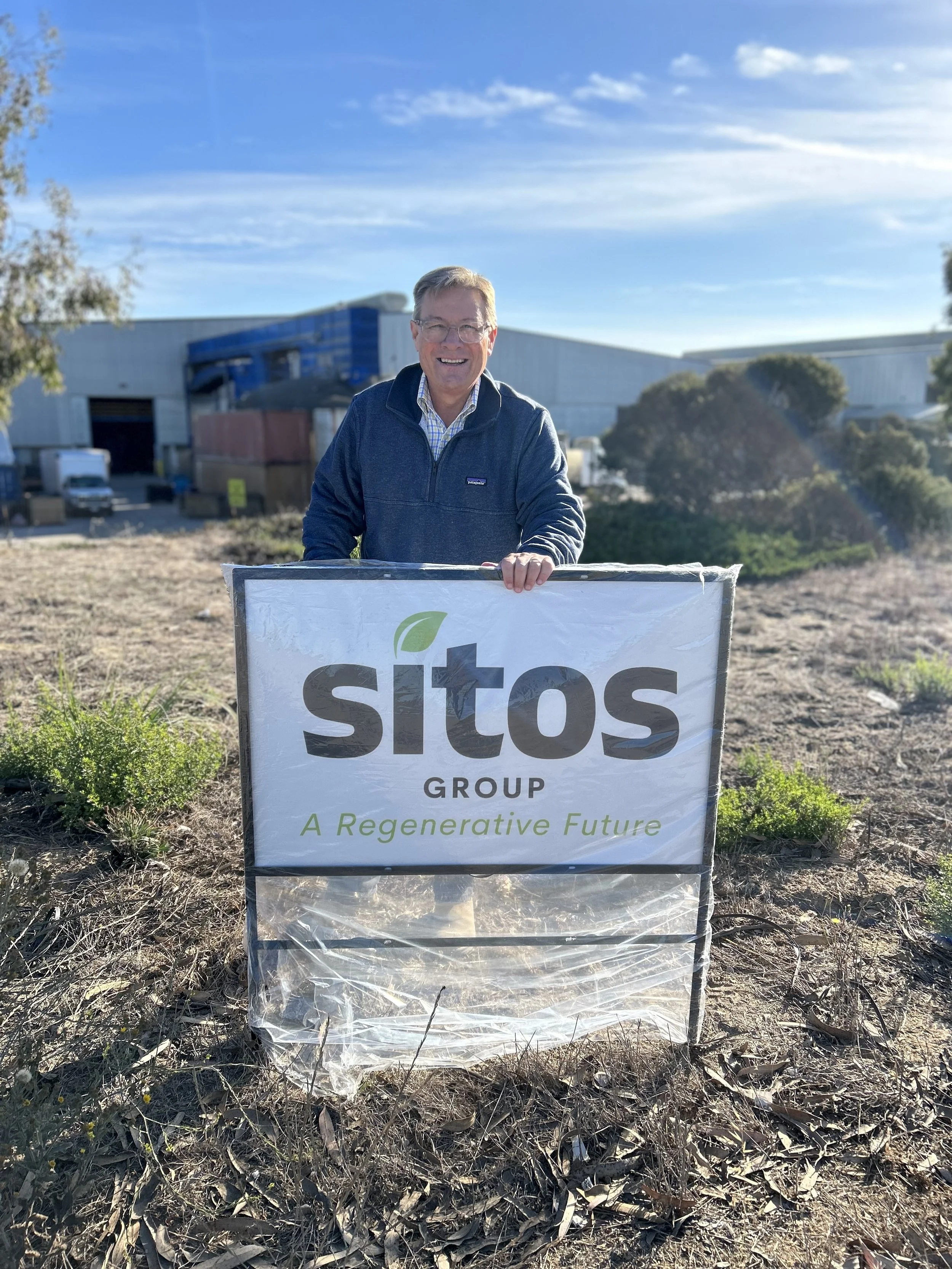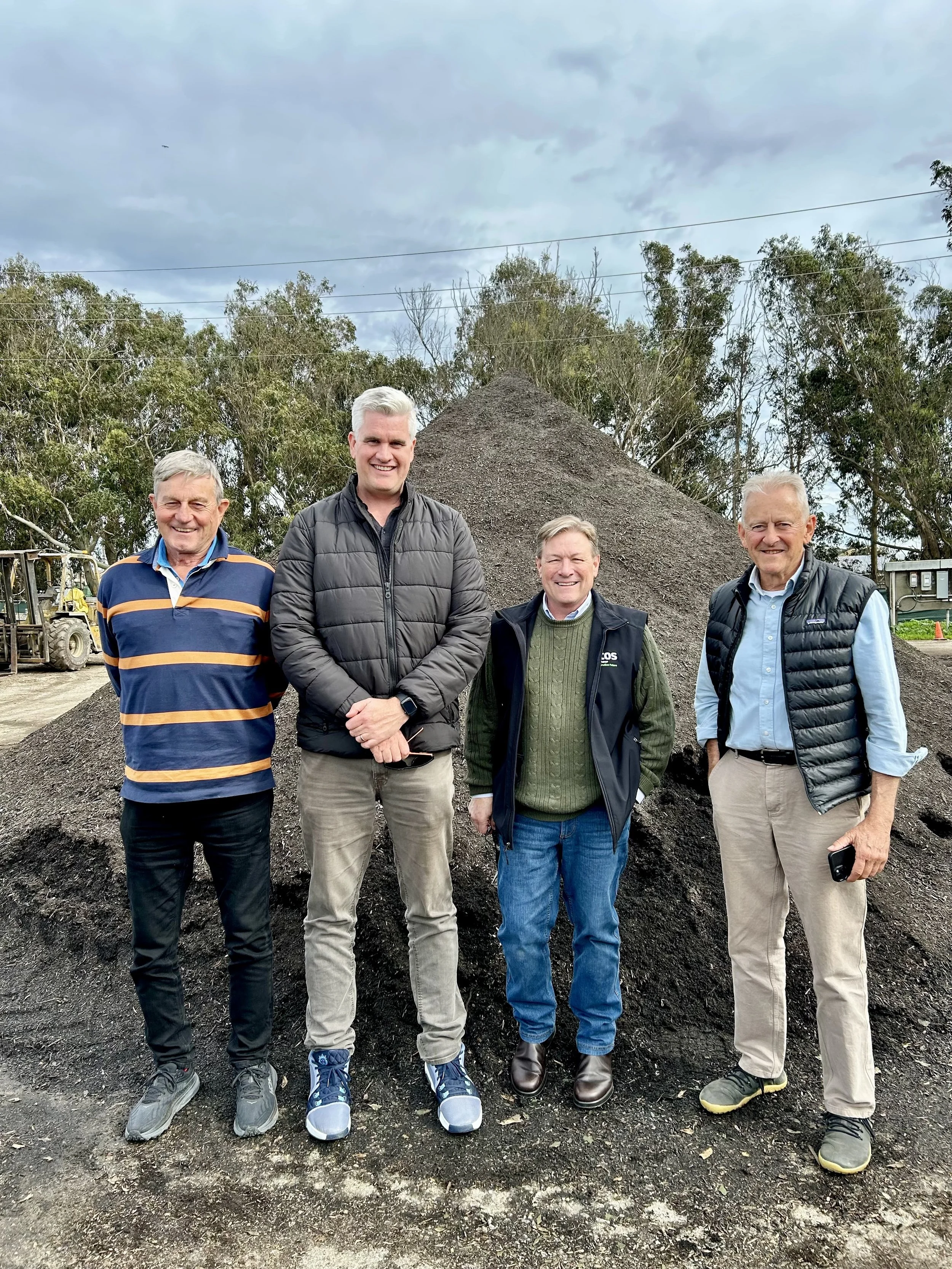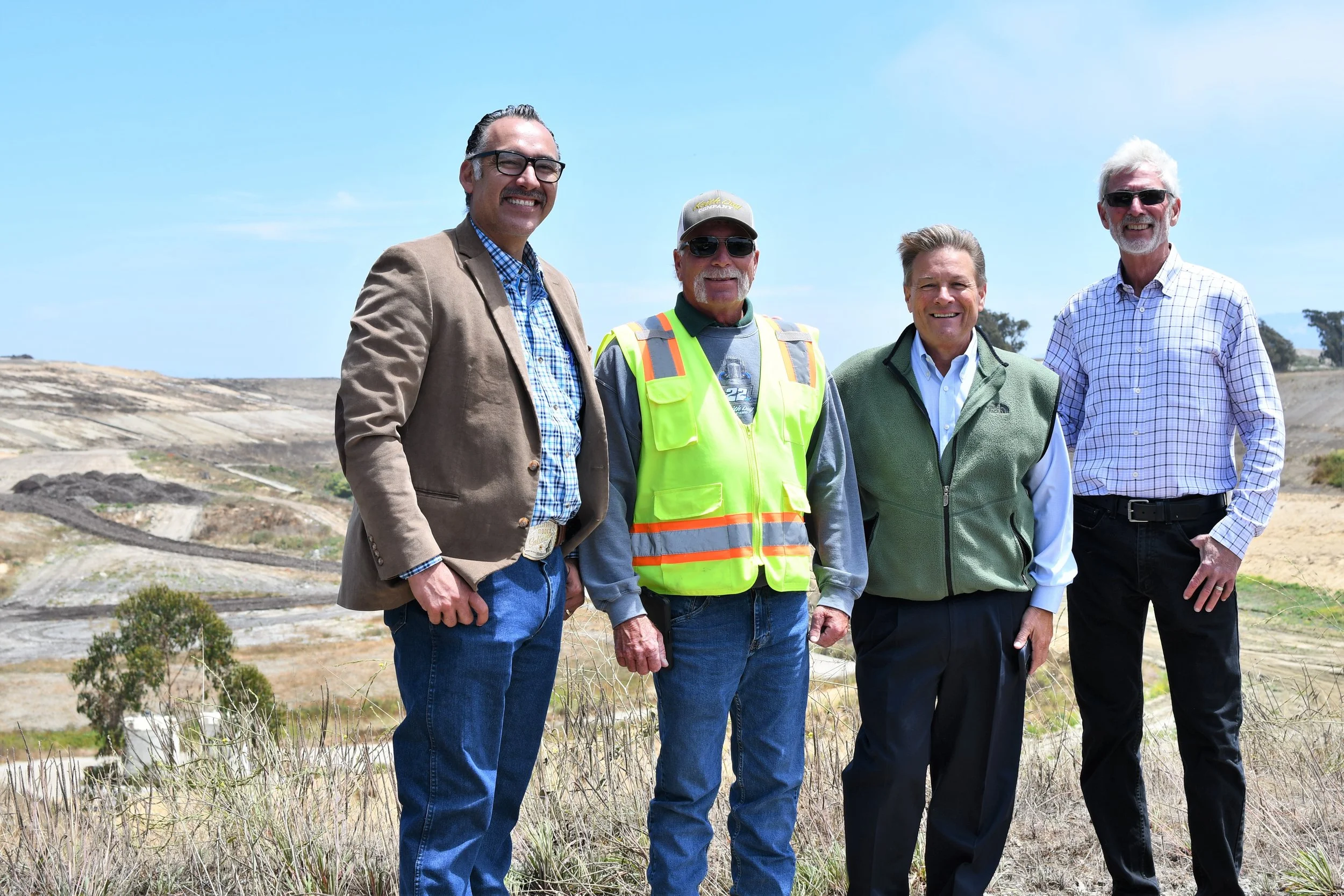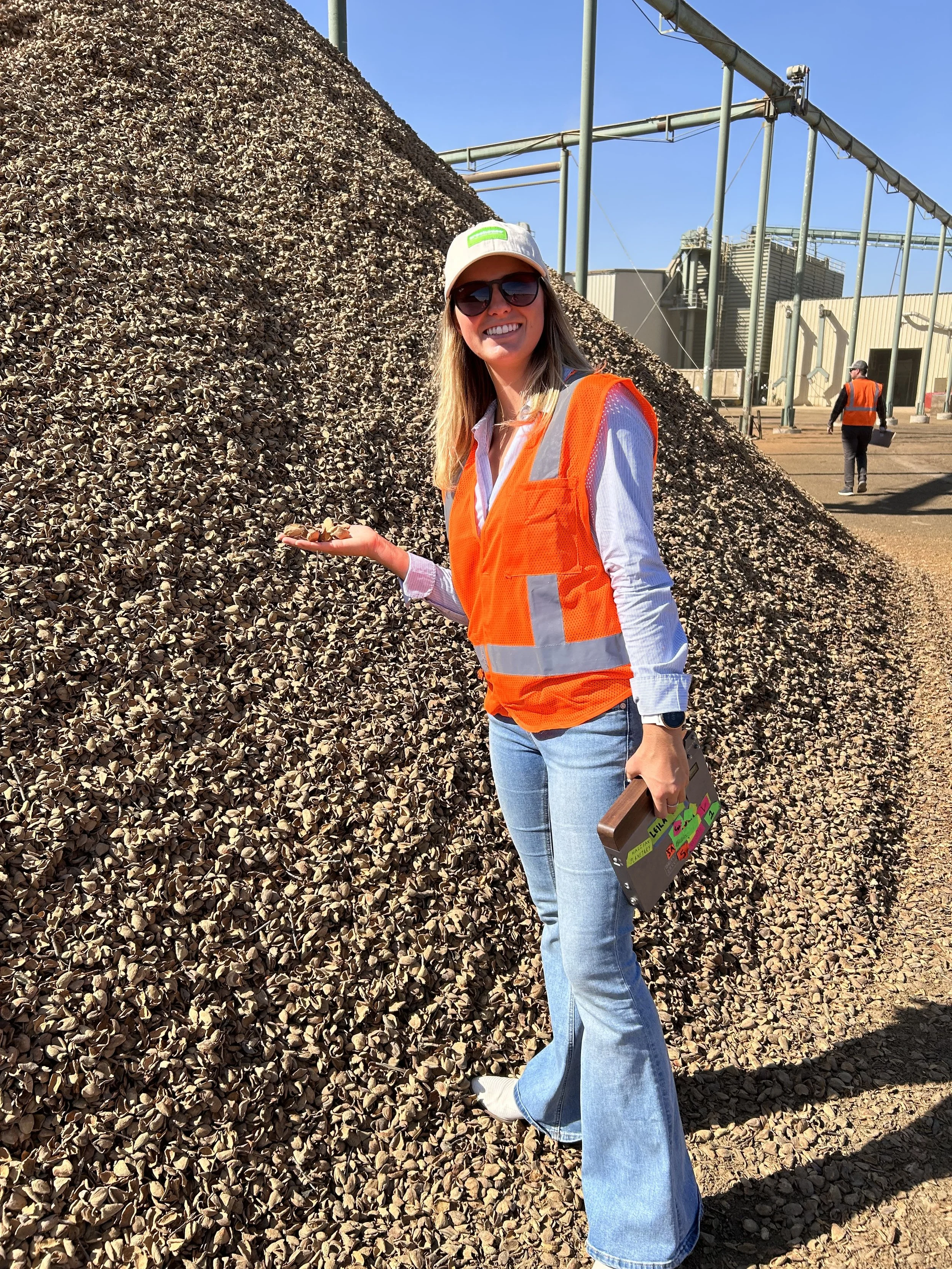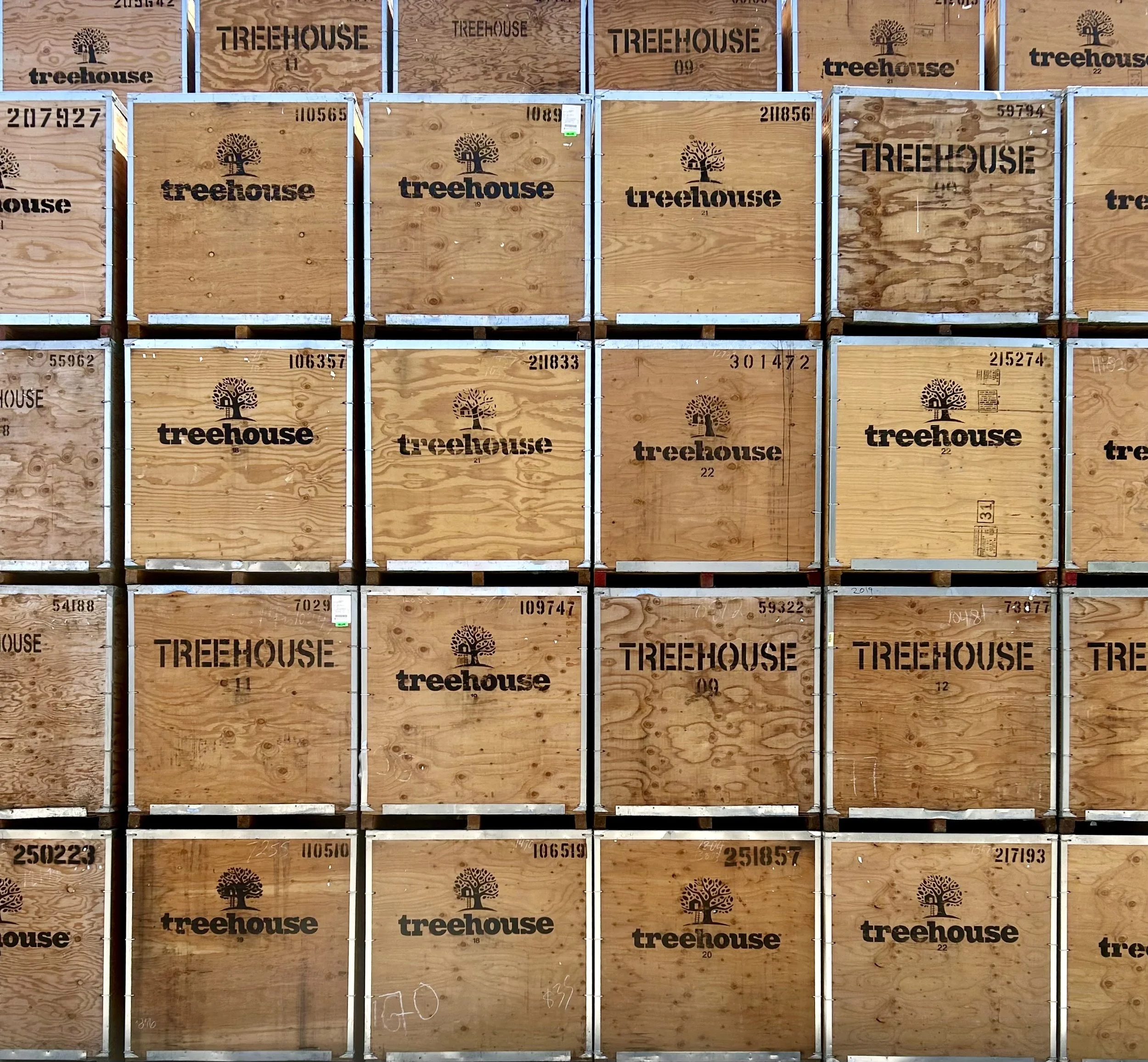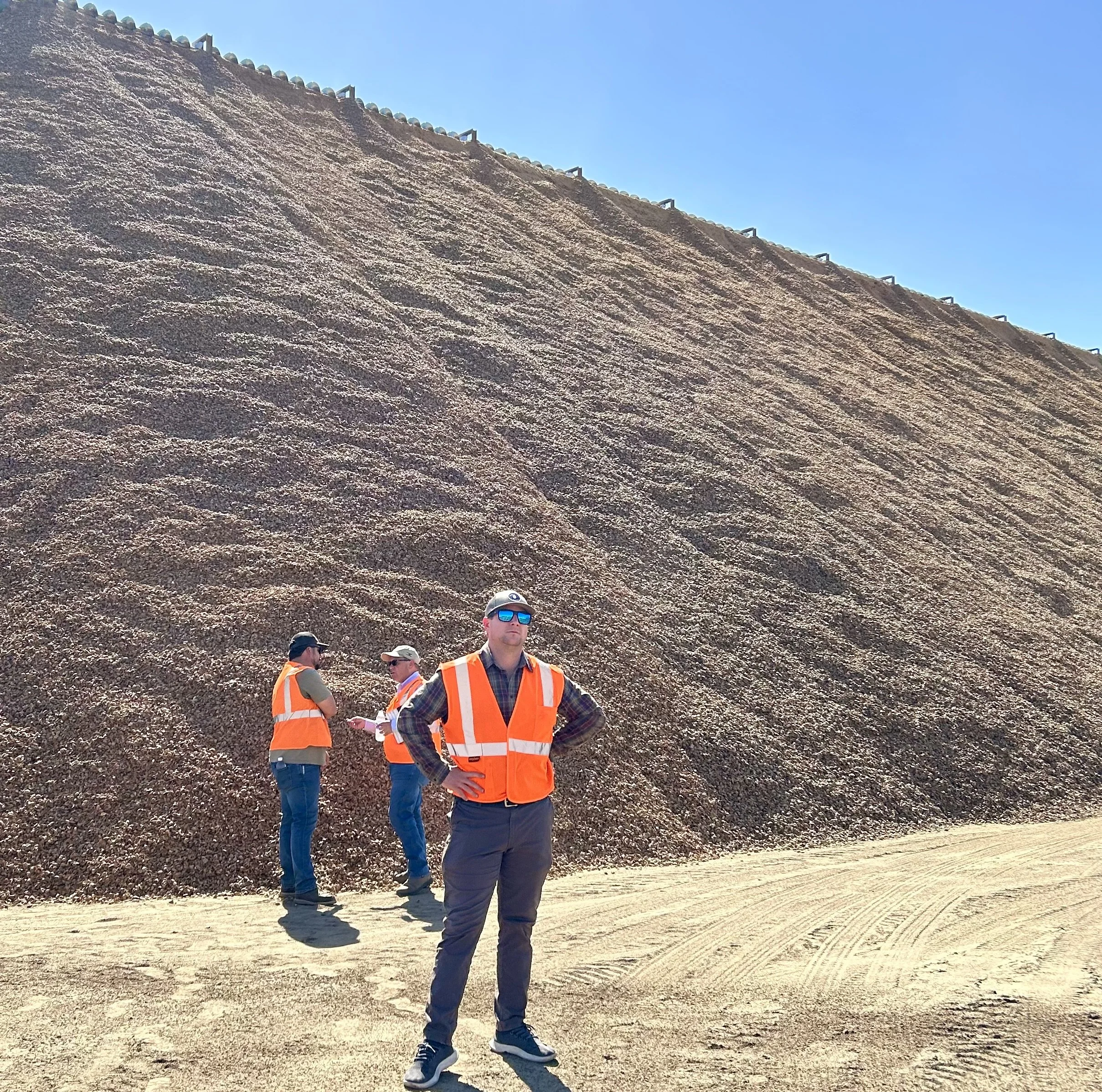End of an Era: Sitos Group Concludes Pilot at ReGen Monterey
In early 2023, Sitos Group launched a pilot-scale biochar production facility at ReGen Monterey. Two years later, we're reflecting on a transformative chapter—one that not only advanced our biochar production process, but also pushed forward the climate tech, carbon removal, and regenerative agriculture movements.
Scaling Climate Tech Responsibly
Every scalable solution starts with a validated process. Located at Monterey County’s regional materials recovery facility (ReGen Monterey), our pilot unit was built to prove that high-quality biochar can be produced consistently, sustainably, and in alignment with the needs of both agriculture and carbon markets—all while showcasing the potential of our chosen slow pyrolysis technology.
What began as a proof-of-concept quickly evolved into a living lab: a hub for innovation, education, and demonstration—spanning biochar in agriculture, carbon removal, and circular economy models for biomass utilization.
With the support of our project partners, this facility allowed us to:
Validate our slow pyrolysis technology in real-world conditions
Refine operational practices and system settings
Establish proof of concept with stakeholders across the climate and ag-tech sectors
Lessons That Shaped Our Biochar Process
Over the course of two years, our team optimized key aspects of biochar production. These lessons are now foundational to our commercial-scale projects:
Feedstock Matters: Clean, agricultural biomass with ideal moisture content and particle size dramatically improved both biochar yield and quality—while enabling smoother, more efficient system operations.
Post-Processing Is Key: Quenching, curing, and composting enhanced the agronomic value and storage stability of our biochar, priming it for effective use in agricultural applications.
System Controls Shape Outcomes: Fine-tuning airflow, internal temperatures, and feedstock residence time directly influenced the physical and chemical properties of our final product.
From Biomass to Biochar: Circular Economy in Action
The pilot facility was a working example of the circular economy. Through our partnership with Keith Day Company, we transformed previously underutilized biomass into biochar—a carbon-rich soil amendment blended into compost and applied to local agricultural lands. This closed-loop system not only improved soil health but also showcased biochar’s potential as a shovel-ready solution for resource efficiency and long-term carbon sequestration.
Biochar & CDR: Unlocking Carbon Market Potential
Beyond agriculture and resource efficiency, this pilot was pivotal in advancing our understanding of biochar and slow pyrolysis as reliable, measurable carbon dioxide removal (CDR) solutions.
In collaboration with our partners, we developed a comprehensive end-to-end monitoring, reporting, and verification (MRV) system—capturing everything from production data and lab testing protocols to compost application tracking. These systems not only meet evolving voluntary carbon market standards, but also position us to enable supply chain insetting. By integrating biochar into their sourcing strategies, food and agriculture companies will be able to achieve verifiable climate impact following the launch of our first commercial facility.
Regulatory Impact: Supporting the EPA’s Change of Pyrolysis Classification
One of the pilot’s most groundbreaking achievements was regulatory. With expert guidance from Catalyst Environmental Solutions and direct collaboration with the Monterey Bay Air Resources District (MBARD), Sitos Group secured a first-of-its-kind air permit for our pyrolysis system—formally recognized as not an incinerator under 40 CFR 60 Subpart EEEE.
This milestone validates slow pyrolysis as a clean, climate-beneficial technology capable of converting clean cellulosic biomass into stable carbon products. Read more about this regulatory breakthrough in [our detailed blog post here].
Community, Collaboration, and Collective Progress
None of this would’ve been possible without the people and organizations who believed in the mission.
First and foremost, we extend our deepest thanks to the team at ReGen Monterey, who offered the site and support that brought this vision to life. Their commitment to climate solutions and innovative biomass management was critical to our success.
We are also immensely grateful to Keith Day Co., who supplied a steady stream of high-quality feedstock and showed up when we needed help troubleshooting. Their compost yard gave our biochar a home, and their team made sure it was always ready for agricultural use. A special and heartfelt tribute goes to Michael, who was with us through the critical first year. His passion, precision, and presence helped shape this project from the ground up.
And to the fabrication team at Monterey Pacific—thank you. You were there whenever we needed an extra hand, a creative solution, or an advocate for the role biochar can play in the future of farming.
What’s Next: Commercial Biochar Deployment
The insights from this project now fuel something bigger: a commercial biochar production facility in partnership with Treehouse California Almonds.
This new facility puts our lessons into action—delivering more efficient throughput, advanced system automation, and deeper integration with agricultural partners committed to building sustainable supply chains and a more regenerative future. [Learn more here.]
For Sitos Group, this pilot was always about systems thinking—about understanding what it truly takes to scale responsibly. As we move into our next phase of growth, we do so with deep gratitude: to our partners, our community, and the supporters who believed in this mission before the first batch of biochar came out of the kiln.
We're proud of what this facility represents—and even more excited about what comes next. The future of climate innovation is local, scalable, and rooted in collaboration. Biochar is just getting started!
